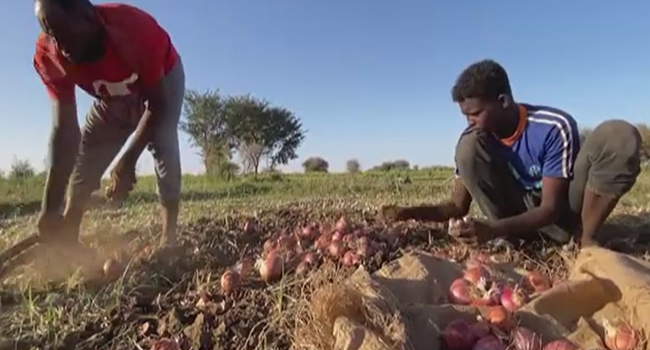
In the Sudanese Nile River State, located north of Khartoum, the impact of the ongoing conflict is keenly felt despite the physical distance from the combat zone.
The month-long fighting has exacerbated the already existing humanitarian crisis in the country, where one out of every three individuals was already reliant on humanitarian aid prior to the outbreak of war.
Fuel shortages have affected farmers in the Al Qalaa region, leaving them with no choice but to rely on donkey carts as their sole means of transportation.
"Currently, petrol is unavailable, and its price has surged on the black market. This situation hampers the transportation of vegetables. Our thoughts are with the armed forces, and we hope they succeed in defeating the rebels so that our country can be free from this rebellion. May God safeguard Sudan and all its regions."
The United Nations humanitarian agency reports that the cost of essential commodities, including food staples and water, has risen by 60 percent or more due to supply challenges.
Gaafar, an activist, praises the resilience and solidarity demonstrated by the people of the eastern state of Kassala.
"In Kassala State, attempts have been made to exploit the crisis, but thankfully, the close-knit community and mutual familiarity among people have prevented market exploitation and greed. I hope the situation returns to normal. Our information indicates that there are sufficient supplies of basic necessities in the state of Kassala."
As the deadly clashes persist between the army and the paramilitary group RSF, primarily in Khartoum and the state of West Darfur, the plight of the Sudanese people continues.
Aly Verjee, a researcher at Sweden's University of Gothenburg, describes the fighting as leading to the "partial deindustrialization" of the country, which implies that any future Sudan will endure prolonged poverty.
Copyright © ENTREPRENEURSHIP DEVELOPMENT INSTITUTE 2015. All rights reserved.
Powered by: C.B.N